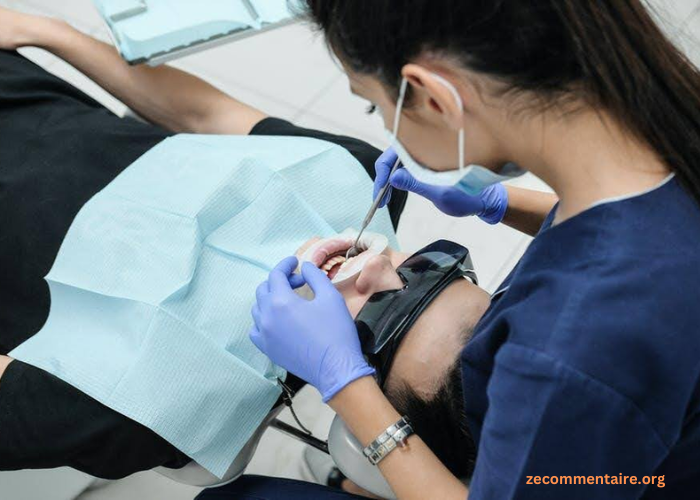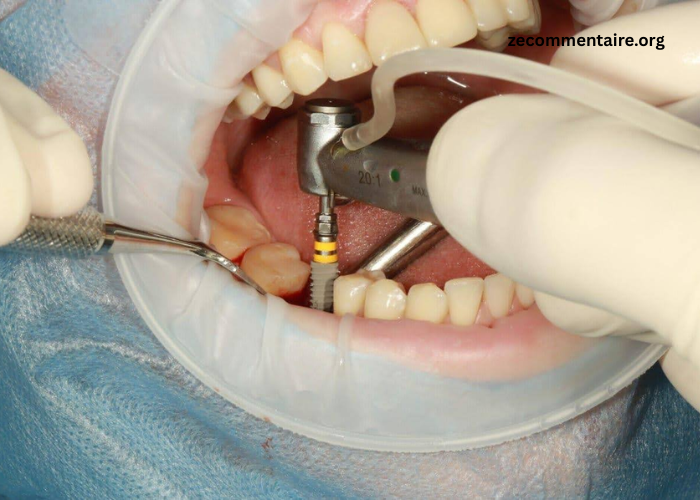Wisdom teeth are also known as third molars. It typically emerges in late adolescence or early adulthood. While some people experience no complications, others may face serious dental issues requiring urgent attention.
Recognizing the signs that indicate you need emergency wisdom tooth removal can save you from severe pain and prevent further dental complications. In this blog post, we will explore the 11 signs that suggest you need immediate intervention for your wisdom teeth.
Let’s begin!
1. Severe Pain and Discomfort
Severe pain and discomfort can be caused by impacted wisdom teeth. This is where they are unable to properly emerge due to lack of space in the jaw.
As a result, it can cause pressure on nearby teeth and nerves, leading to intense pain and discomfort. If the pain becomes unbearable, it is a sign that your wisdom teeth need to be removed urgently.
2. Swelling and Redness
If you notice swelling and redness around your wisdom teeth, it could be a sign of infection. This can occur when bacteria get trapped around the erupting tooth, causing inflammation and pain.
Moreover, the infection can spread to other areas of your mouth, causing more serious complications. Seek emergency dental care if you experience swelling and redness around your wisdom teeth.
3. Difficulty Opening Your Mouth
Impacted wisdom teeth can also cause difficulty in opening your mouth. This is due to the pressure and pain caused by the tooth pushing against nearby structures.
If you are having trouble fully opening your mouth, it could be a sign that your wisdom teeth need to be removed immediately. This can also make it difficult to eat and speak properly, affecting your daily life.
4. Infection Symptoms
In addition to swelling and redness, other symptoms of infection around your wisdom teeth include fever, foul odor, and a bad taste in your mouth. These are all signs that you may need immediate tooth removal.
Moreover, if the infection is left untreated, it can lead to more serious health issues such as abscesses and even sepsis. Therefore, it is important to seek immediate treatment if you experience any signs of infection.
A quite fast and painless tooth removal should be carried out right away in such a case. Otherwise, the infection and swelling will only get worse.
5. Gum Disease
Gum disease, also known as periodontal disease, can occur when bacteria build up around the wisdom teeth and cause inflammation of the gums. This can lead to gum recession, pockets between the teeth and gums, and even tooth loss if left untreated.
If you notice signs of gum disease such as bleeding or swollen gums around your wisdom teeth, it is important to seek emergency dental care to prevent further damage. This may include removing the wisdom teeth to prevent further infection and damage to your gums.
6. Jaw Stiffness
Jaw stiffness as well is one of the known dental emergency signs. This can occur when the impacted tooth puts pressure on your jawbone, causing limited movement and discomfort.
If you are experiencing stiffness or pain in your jaw, especially around your wisdom teeth, it is recommended to seek immediate treatment. This may include a tooth extraction to relieve the pressure and alleviate the stiffness.
7. Sinus Issues
Impacted wisdom teeth in the upper jaw can also cause sinus issues. This can happen when the tooth’s roots grow into the sinuses, causing sinus pain, pressure, and congestion.
If you have recurring sinus issues or experience them after your wisdom teeth have emerged, it could be a sign that your wisdom teeth need to be removed. This will not only alleviate your sinus issues but also prevent further complications.
8. Cyst Formation
In some cases, impacted wisdom teeth can lead to the formation of cysts, which are fluid-filled sacs that can cause damage to your teeth and surrounding structures.
If you notice any lumps or bumps near your wisdom teeth, it could be a sign of a cyst. It is important to seek immediate dental care if this occurs. Imagine how excruciatingly painful it would be if the cyst burst. On top of that, the infection can spread to other areas of your mouth and cause further damage.
9. Damage to Nearby Teeth
When wisdom teeth are impacted, they can push against nearby teeth, causing damage to their roots or leading to overcrowding.
If you notice any changes in your bite or experience pain and discomfort in your other teeth, it could be a sign of wisdom tooth-related damage. Seek emergency dental care to prevent further complications.
10. Persistent Bad Breath
Another sign that your wisdom teeth need to be removed is persistent bad breath. This can occur due to bacteria build-up around the impacted tooth, leading to a foul odor.
If you have tried improving your oral hygiene and still experience bad breath, it could be a sign that your wisdom teeth are causing the issue and need immediate attention. This will not only improve your breath but also prevent further dental issues.
11. Visible Decay or Damage
Visible decay or damage to your wisdom teeth is a clear sign that they need to be removed immediately. This can occur when the tooth partially emerges and becomes difficult to clean properly, leading to decay or damage.
It is important to visit your dentist regularly for check-ups, especially when your wisdom teeth are emerging, to catch any signs of decay or damage early on. This will prevent the need for emergency wisdom tooth removal in the future.
Know the Signs You Need Emergency Wisdom Tooth Removal
Recognizing the signs that indicate you need emergency wisdom tooth removal is crucial for maintaining your oral health. It is important to seek immediate dental care if you experience any of the 11 signs discussed in this blog post.
By taking prompt action, you can prevent severe pain and further complications that may arise from impacted wisdom teeth. Remember to visit your dentist regularly for check-ups and to discuss any concerns you may have about your wisdom teeth. Stay vigilant and take care of your oral health!
Should you wish to explore other topics, head to our main blog page. We’ve got more!





